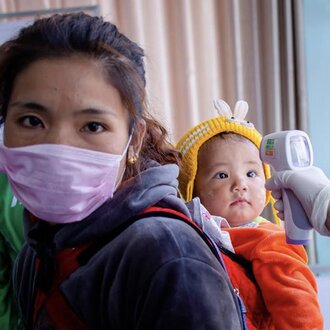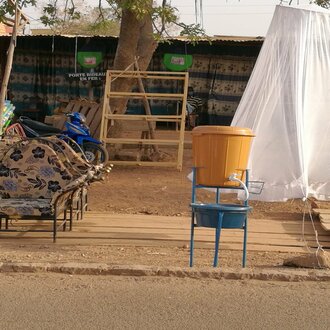Peru: It's far from over
By Kaspar Schmidt, Helvetas Program Advisor Peru
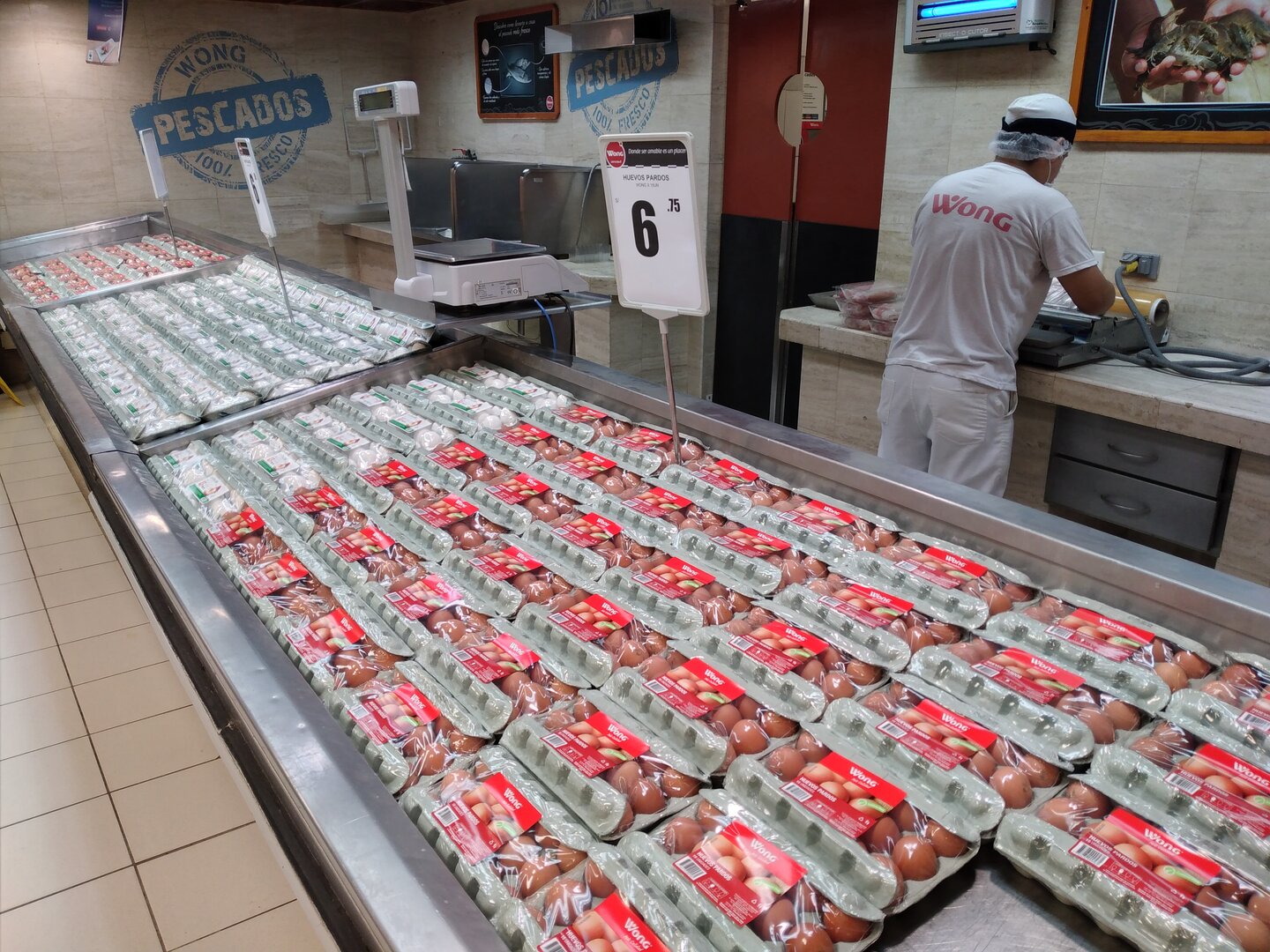
In Peru, people continue to live in the epicenter of the coronavirus pandemic. The number of daily new infections in the countries of Latin America remains at a high level or even continues to increase. Brazil, Peru and Chile are now among the seven most affected countries worldwide (for the reasons see Part 7).
Walking around the block with a full bodysuit and a visor
In our residential quarter in Lima, there are now a little more people on the streets again, all with the required masks and mostly visibly anxious to keep a distance from others. You can also see many adults and children wearing plastic visors over their masks, and more and more people wearing full bodysuits.
The crisis still strongly influences the everyday life of people in Peru, restricts and creates insecurity. The state of emergency was extended until the end of July - now with regionally differentiated rules of conduct. The illness of friends and acquaintances, including families of Helvetas staff here or among the staff of some of our projects and partner organizations, suddenly gives the often abstract-looking case numbers a personal face.
Our Helvetas Peru team will continue working from home until at least the end of August. We are learning a lot of new things and in some cases, we are working together more intensively than before, as I reported at the end of May (Part 6). Project work in the field is subject to major restrictions. The task now is to finalize the security protocols that are necessary for the work to continue; not an easy task, given the often unclear or excessive state regulations.
Shopping among men only
In retrospect, there have also been amusing or absurd moments. At the beginning of April, the Peruvian government decreed that men and women were only allowed to shop on alternate days. It was a strange experience for me to suddenly only go shopping in the company of other men. Some men seemed a little lost between the racks with their shopping lists. Who knows, maybe this measure helped to distribute the household tasks between men and women more evenly? In any case, the measure had no effect on the spread of the virus, which is why the government withdrew it after a week. It was also surprising to find neatly lined up egg cartons instead of fresh fish at the fish counter one day. In the first weeks of the quarantine there were hardly any eggs. Then they suddenly started to roll in again in large numbers, while there was hardly any fresh fish to buy, as fishing was suspended. People had to improvise…
Deepening distress
It is still too early for an interim assessment in Peru. Insecurity, fear of infection and treatment in overburdened hospitals are widespread. At the same time, economic pressure has increased further. Many, especially poor households, are in distress. The recession is causing people great concern. The gradual reopening of the economy, which has already begun, is needed. Under the conditions of an emerging market, however, this represents a particularly challenging balancing act: Protection of health on the one hand, and opening the economy on the other. It is not yet possible to foresee how it will turn out. At this point, only one thing seems certain: the first wave of infection, which will peak between the end of May and mid-June, probable further waves and the economic crisis will continue to preoccupy people in Peru and throughout Latin America for a long time to come.
Myanmar: For life in dignity
By Peter Schmidt, Director Helvetas Myanmar
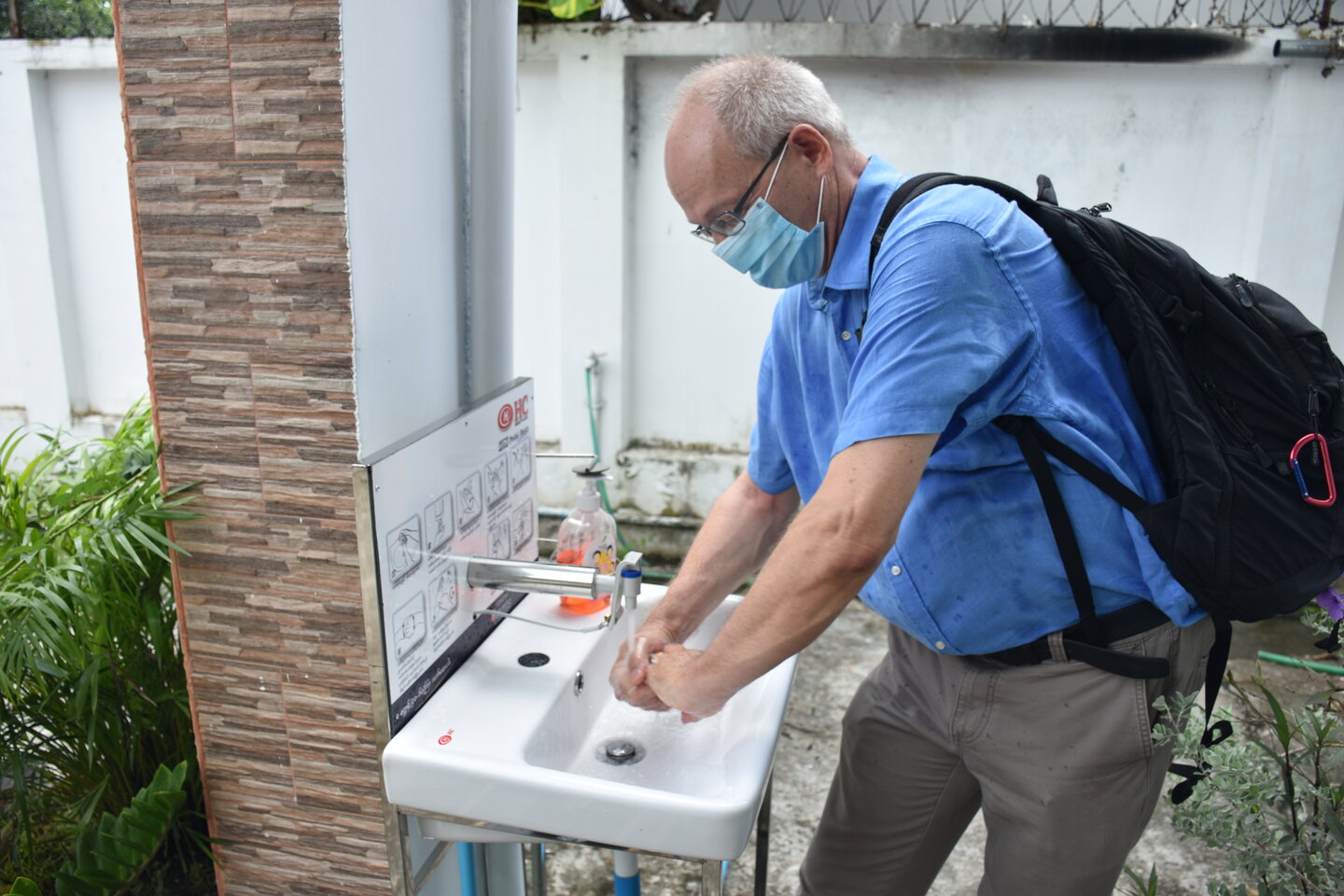
A friend in Switzerland has been working for years in an industry now badly shaken by the COVID-19 crisis. A few days ago, his employer, a renowned company, communicated a coronavirus-related job reduction and dismissed the 58-year-old. He will be released from his duties within a week. The shock is deep-seated; the chances for a new job are slim, to say the least.
Never before in our 35-year partnership have my wife and I not seen each other for so long. She has been in Switzerland for 100 days and I am stuck in Myanmar's capital, Yangon. I know this is everyday life for many couples. But not for us. I observe how the isolation, combined with the restricted freedom of movement that still exists, makes me resentful. Patience and tolerance levels are lower than usual.
Chaos for job seekers
Last week I visited our project in one of the suburbs of Yangon, which is about migrant women in Myanmar. At least I am allowed to go there again! Shwe Pyi Thar is a densely populated quarter with 300'000 people and an industrial belt. Minimum 6,000 female workers in the leather and garment industry have lost their jobs. Chaotic conditions prevail in front of the state employment offices, where the unemployed have to register to obtain the necessary papers to find work. Long lines of people. And it is not as I would have thought that most of the dismissed people travel back to their hometowns. No, they stay and look for work, and newcomers join them. How they survive in this time of no income remains a mystery to me.
Several hundred migrants who have lost their jobs in Thailand and are still returning daily to another of our project areas, in Southeast Myanmar. Those who left the country legally also return legally and in a reasonably organized way. The others - they make up an estimated half - sneak across the green border. But all of them, it seems, end up in quarantine camps. The International Labor Organization (ILO) is conducting a survey among the returning refugees: 58% of them want to try their luck in Thailand again after the end of the pandemic. How great must the need be for more than half of those who have returned by force to subject themselves to it again!
Suicide as the final act of desperation
This week, the media reported that Malaysia, another major migration destination, is seeing an increase in suicides among women from Myanmar who have immigrated and become unemployed. The desperation could not have been greater...
All these migrant workers are experiencing uncertainty and a life separate from their loved ones. Compared to that, how insignificant 100 days alone in my apartment in Yangon are! Tens of thousands of these migrant workers have lost their jobs as a result of the COVID-19 crisis. There are no social plans, no insurance, no pension fund, no early retirement. The safety nets that are available to my friend in Switzerland, who was hit so hard, are missing. There is still much to be done for a life in dignity for all and a fairer world!
Burkina Faso: Economic and social corona wounds are worse than COVID-19
By Franca Roiatti, Helvetas communications coordinator for West Africa
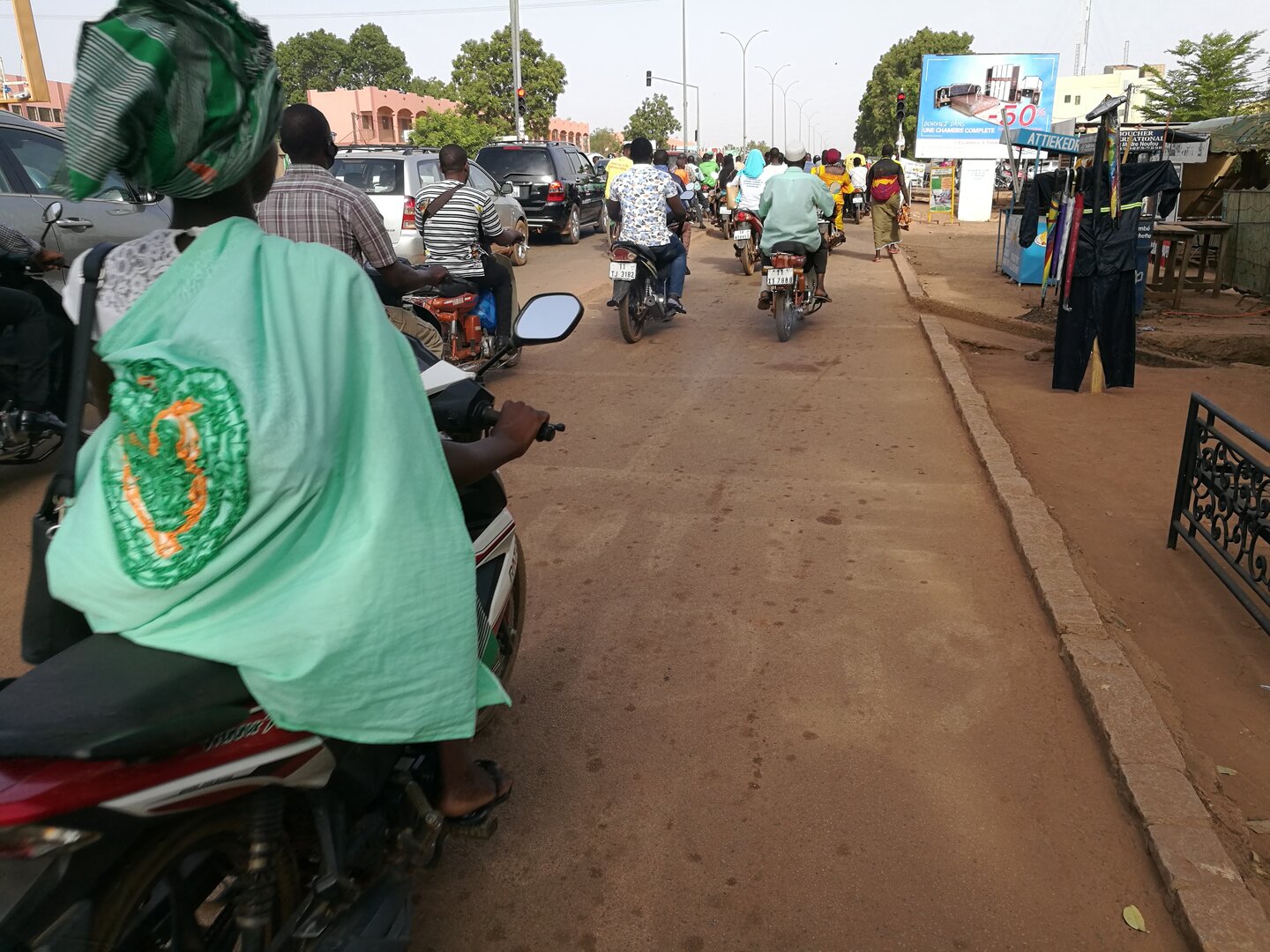
Standing in front of television cameras, the head of the COVID-19 task force announced a few days ago the end of the weekly media conferences on the pandemic in Burkina Faso. From now on, the meeting with journalists will take place only once a month. "We are moving towards normal management of the coronavirus," said Dr. Brice Bicaba, but the virus is "still there," he stressed when he provided information on the latest infection figures.
Weak testing capacity, unclear future
Although the reported cases in this West African country are still low compared to Europe, the USA or Latin America, it is difficult to predict when the pandemic will be under control. Testing capacity is still weak, but the government plans to open voluntary screening centers in most regions of the country.
The markings on the asphalt to help cyclists and motorists keep their distance at traffic lights are now fading. A look at everyday life shows the attitude many people have towards the recommended precautions: in bars, restaurants and markets, people sit and stand close together. Masks, usually made of simple fabric, often hang under the chin or dangle from one ear. Some mobile hand washing machines at the entrance to shops and offices lie around without water, others have disappeared.
Young people are hit particularly hard
"It's difficult to keep attention to the coronavirus high," confirms Mouomouni Dialla, entrepreneur and president of the Conseil National de la Jeunesse (CNJ), an umbrella organization of youth associations throughout the country. The government relies on 15,000 young volunteers to help raise awareness of COVID-19. "We meet people to show the right behavior and organize training courses on how to produce disinfectant hand gel," summarizes Dialla. The young owner of a transport company expresses his concern about the economic situation: "Young people work mainly in the informal sector and are therefore severely affected by this crisis," he explains. "The closure of street markets and borders, the quarantine and slowing down of transports have affected the savings of small businesses and families, and recovery is very tentative so far.
It seems more difficult to heal the economic and social wounds of this pandemic than COVID-19 itself: "I was forced to sell my vegetables at a quarter of the price, here in the fields, because I couldn't bring them to town," Mariam, who grows cabbage and tomatoes near Bobo Dioulasso, tells me. Many farmers had to sell their produce for weeks at low prices - or watch it rot. They were unable to buy fertilizer for the growing season at a crucial time. This could lead to a smaller harvest. The FAO - the Food and Agriculture Organization of the United Nations - warns of rising food prices. Another blow for the most vulnerable families. Will they have enough money to buy the food they need, send their children back to school, pay for a doctor or buy soap?
As in Europe, there are people in Burkina Faso who feel that it is now time to build a more resilient economy. The question remains open: will a government facing a major humanitarian crisis due to increasing attacks by armed groups and upcoming general elections be able to respond to this challenge?



